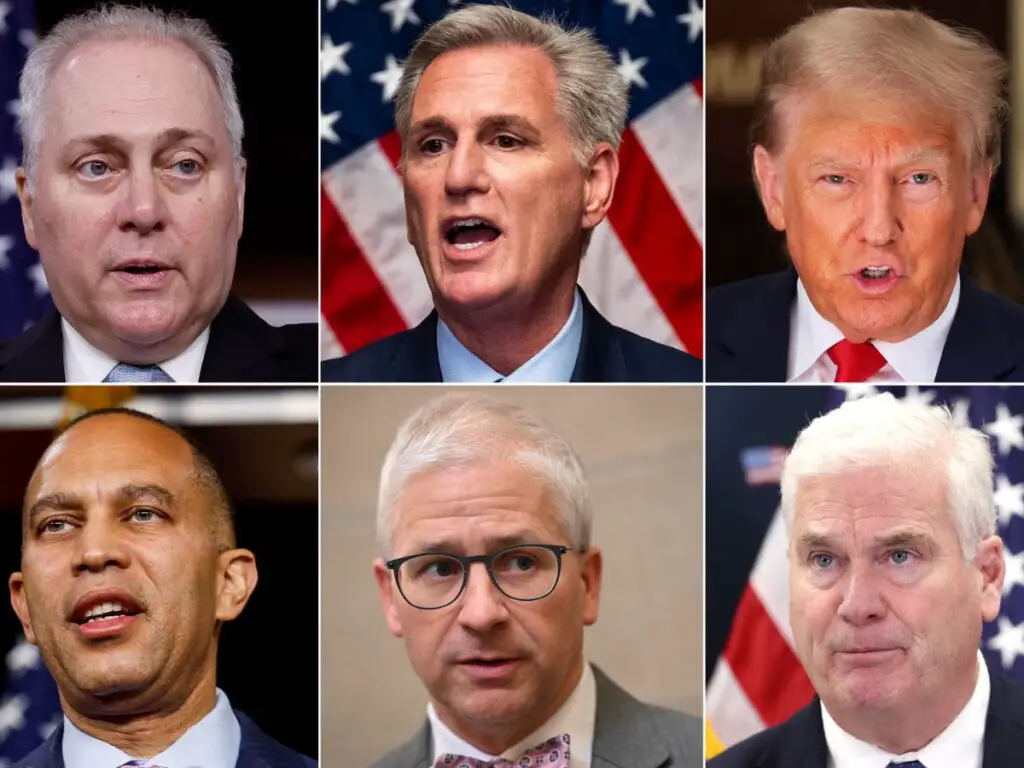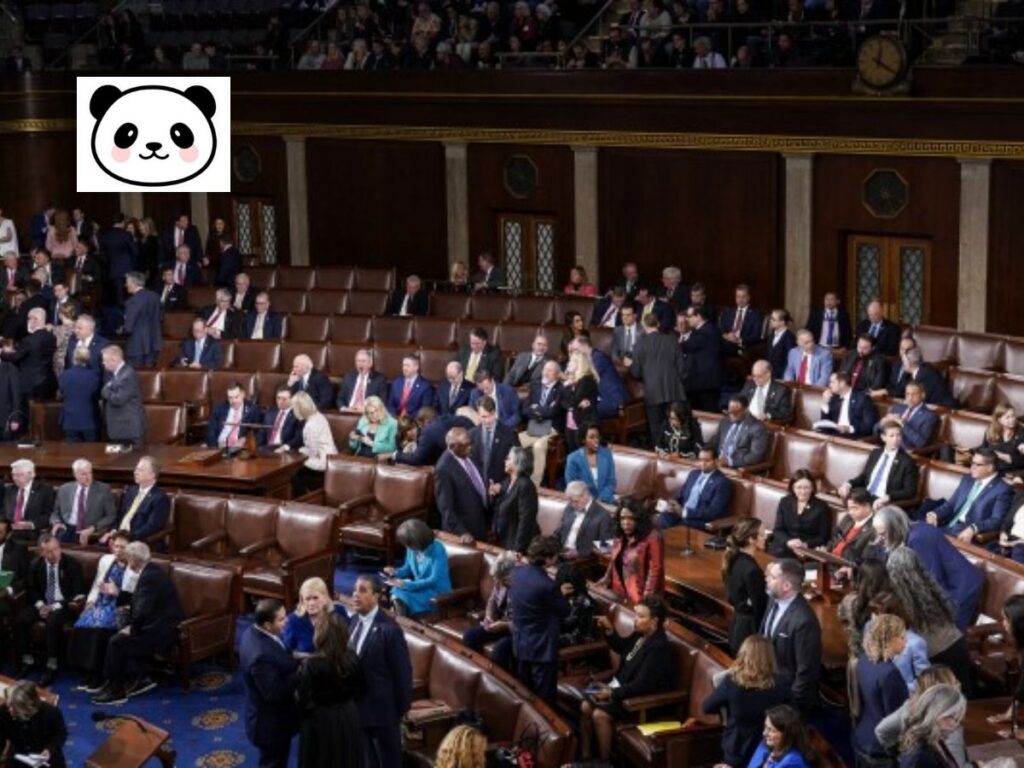Introduction
Held in high regard within the US government, the New House Speaker of Representatives is in charge of overseeing the House, upholding law and order, and determining the direction of legislation. A New House Speaker has assumed power in 2023, perhaps bringing about changes and a new period of leadership.


In navigating the complicated terrain of American politics, this article explores the duties and responsibilities of the New House Speaker as well as the selection procedure and expectations for the incoming Speaker.
The Role of the New House Speaker
Being the highest-ranking official in the U.S. New House Speaker of Representatives, the Speaker of the House is essential to the operation of the legislative arm of government. The Speaker is in charge of several crucial responsibilities, such as:
Overseeing Sessions: The Speaker is in charge of overseeing the House’s daily sessions, ensuring that the rules are adhered to, preserving decorum and order during discussions, and allocating speaking time to members.
Committee Appointments: The Speaker is able to designate individuals to serve on a number of committees, including the Rules Committee, which has a major say in how laws are passed.
Establishing the Legislative Agenda: Selecting the measures that are discussed and put to a vote on the New House Speaker floor is one of the Speaker’s most important responsibilities. Legislation that advances the goals of their party or their own policies can be given top priority.
Party Leadership: The Speaker is the head of the majority party in the House and is responsible for creating and advancing the agenda for legislation for the party.
Representative of the House: The Speaker frequently represents the House and the congressional leadership in public speeches, acting as the body’s public face.
The Selection Process
The procedure used to choose the Speaker of the New House Speaker is firmly based on custom and constitutional law. Every new Congress kicks off the process, which usually ends with a formal vote on the House floor.
Election by Members: Both the majority and minority parties’ representatives in the New House Speaker of Representatives vote to choose the Speaker. In actuality, the Speaker typically belongs to the party in power.
Majority Party Nomination: The party with the most seats in the New House Speaker, or the majority party, usually chooses its candidate for Speaker prior to the election. The party caucus normally makes this decision, and it is generally accepted by the membership.
House Floor Vote: The New House Speaker convenes to formally elect the Speaker on the first day of the incoming Congress. Because of the majority party’s superiority in numbers, the nominee from that party typically wins the position of Speaker.
The New House Speaker of 2023
A New House Speaker has taken office in 2023, signaling a change in political dynamics and legislative agendas in addition to a change in leadership. Future expectations are greatly influenced by the new Speaker’s background and identity.
In this instance, it is critical to comprehend the political landscape and the Speaker’s personal history. Sharp partisan divisions characterize the political scene, which can have a big impact on how the Speaker performs in their job.
Expectations for the New House Speaker
As the New House Speaker of the House takes the reins in 2023, a set of expectations and challenges come into play:


Leadership and Bipartisanship: In recent years, there has been a marked increase in polarization in the American political environment. The hope is that the New House Speaker will foster cooperation and close the divide between the two major parties. Reaching this objective may be essential for promoting significant legislation and encouraging collaboration.
Legislative Priorities: The legislative agenda is supposed to be set and led by the Speaker. Important topics including healthcare, climate change, and economic recovery will be in the spotlight in 2023. We’ll be closely observing the Speaker’s capacity to fight for these concerns and set priorities.
Committee Appointments: The legislative process may be greatly impacted by the Speaker’s selection of committee members. It is anticipated that the Speaker will select people who can lead important committees and steer legislation through the House.
Communication Skills: The Speaker must be able to interact with the public in an effective manner because they are the public face of the House. It is anticipated that the next Speaker will interact with the media and effectively and persuasively communicate the House’s position on important subjects.
Managing House Rules: The Speaker plays a key role in determining how to interpret and implement House rules. It is imperative to provide an equitable and lucid legislative procedure. The House’s sense of justice and equality will be influenced by the Speaker’s handling of rules and procedures.
Long-Term Goals: It is anticipated that the Speaker will have long-term goals for the House of Representatives. This entails taking into account the organization’s place in American democracy, its interactions with the other arms of the government, and its ability to adapt to the changing demands of the country.
Political Strategy: A crucial component of the Speaker’s job is comprehending the present political environment and navigating through intricate political maneuvers. When leading the House it is imperative to be cognizant of both external forces and inside party dynamics.
The Speaker’s Influence on Policy
The Speaker of the House has a tremendous impact on American politics because of their capacity to enact legislation and set policy. Setting the legislative agenda is one of the Speaker’s most powerful tools for furthering the objectives of their party and the nation.
The New House Speaker will be tasked with navigating a range of pressing issues:
Healthcare: The Speaker is essential to the advancement of legislation in this area. There has been much discussion about the US healthcare system as it currently exists. The Affordable Care Act is up for reform expansion or modification and the Speaker’s position will shape healthcare policy.
Climate Change: It is vital that the world address climate change, and the US must be a major player in doing so. The future of environmental policy in the country will be significantly impacted by the Speaker’s support for climate policies including carbon pricing investments in renewable energy, and climate resilience measures.
Economic Recovery: Many Americans are having difficulty recovering from the COVID-19 pandemic’s financial effects. The speaker is anticipated to promote measures that aid in the revival of the economy, like improvements to infrastructure, programs to create jobs, and assistance for people and companies.
Foreign Policy: The Speaker can affect how money is allocated and the legal framework that directs international relations, even though foreign policy is essentially the purview of the executive branch. Interest regions include commercial agreements, relations with important nations, and international security concerns.
Conclusion
The choice of the next Speaker of the House in 2023 will have a big impact because they are a crucial figure in American politics. The Speaker is a key figure in the government of the country because of the leadership representation and ability to influence the legislative agenda that comes with the job.
Expectations are high as the New Speaker assumes the position, especially given the polarized political environment and the importance of the problems at hand. Leadership the promotion of bipartisanship, and the advancement of important initiatives will all be closely observed.
The Speaker’s leadership is essential to the health of the country because of their influence on American politics in a wide range of sectors including foreign policy healthcare economic recovery and climate change. The country is watching the next Speaker as








